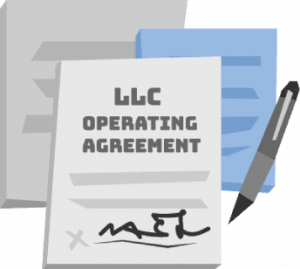How to Start an LLC in Colorado
To start an LLC in Colorado, you’ll need to choose a compliant name, designate a Colorado registered agent, file business formation paperwork online with the Colorado Secretary of State, and pay a $50 state filing fee. Below, we’ll take you through the required steps to form your LLC.

1. Name Your Company
Before you do anything else, you need to give your LLC a name. Colorado’s rules for naming LLCs are detailed in CO Rev Stat §7-90-601. You must be sure your LLC name:
- Contains the words limited liability company or an abbreviation such as LLC.
- Hasn’t already been taken by another business in Colorado.
- Doesn’t include words or abbreviations that make it sound like a different entity type, such as corp or partnership.
Reserving a business name in Colorado
If you aren’t ready to start your LLC yet, you can reserve your business name for up to 120 days by filing a Statement of Reservation of a Name with the Colorado Secretary of State (online only) and paying the $25 filing fee.
Getting a Colorado Doing Business As (DBA) Name
Sometimes a business may want to use a name other than it’s legal LLC name. There’s lots of reasons for this, but even if you just want to drop the “LLC” from your company name on official documents in Colorado, you’ll need to file what’s called a “Doing Business As (DBA).
If you’re going to use a DBA in Colorado, you’ll need to file the Statement of Trade Name with the Colorado Secretary of State and pay the $20 fee.
Reserving a domain name
Before registering an LLC name, it’s smart to reserve a matching or complementary domain name. Otherwise you might discover your ideal business domain name isn’t available when you’re ready to launch a business website. You can add free domain registration for the first year when you start an LLC with Northwest.
Trademarking your business name
The mere act of registering your LLC name in Colorado won’t grant you exclusive legal rights to the name. If another business decides to use your name, there’s not much you can do unless you register a trademark.
You can trademark your name within the state of Colorado by filing a Statement of Registration of Colorado Trademark(must be filed electronically). If you want to protect your name nationwide, you should look into filing a federal trademark.

2. Appoint a Colorado Registered Agent
All Colorado LLCs are required to appoint a registered agent. Your registered agent could be you, another individual, or a registered agent company that is authorized to receive service of process (lawsuits and other legal documents) on behalf of your business. Your registered agent’s name and address will need to be included on your Colorado Articles of Organization.
Colorado registered agent requirements
Colorado’s rules for registered agents are covered in CO Rev Stat § 7-90-701. A Colorado registered agent can provide a range of services, but at minimum, your registered agent must:
- Maintain a physical address in Colorado.
- Be available at that address during regular business hours.
- Accept legal and state mail for your business and forward it to you right away.
Using a registered agent service
You can legally act as your own registered agent in Colorado, but a quality professional registered agent service helps protect your:
- Privacy You’ll be able to keep your own address off of public records.
- Compliance State communications and service of process are immediately scanned to your account, so you’ll know right away, and you’ll never have to worry about losing or missing critical business mail.
By hiring Northwest as your registered agent, you’ll also get personalized compliance notifications. Never worry again about missing state mandated compliance requirements.
Northwest offers both Virtual Office and Mail Forwarding services. In addition to Northwest’s privacy-minded formation strategies, we also offer two affordable services that each include a completely unique, physical street address in Denver.
That’s a physical street address you can use as your principal business address. Both also include unlimited mail forwarding. Only $20/month!

3. Submit Articles of Organization
To formally start your LLC, you’ll need to file the Articles of Organization. In Colorado, you are required to submit your Articles electronically, through the Colorado Secretary of State website.
Note: Every piece of information on this form becomes part of the public record.
To complete the Articles, you’ll need the following information about your LLC:
- Company name. Include limited liability company, LLC, or L.L.C.
- Principal office address. Must be a physical street address.
- Mailing address. P.O. Boxes are allowed.
- Registered agent. Whoever will accept legal mail in person on behalf of your business.
- Registered agent address. Must be a Colorado street address.
- Registered agent consent. Confirm that your registered agent has agreed to be your agent.
- Management structure. Whether your LLC will be managed by members or managers.
- At least one member. Check the box to confirm your LLC has at least one member.
- Optional provisions. Add anything extra here. For example: a list of your members’ names.
- Delayed effective date (optional). If you want, add a future start day for your LLC.
Member-managed vs manager-managed LLCs
In a member-managed LLC, all LLC members share the responsibility of managing the business. In a manager-managed LLC, a manager (or managers) run the daily operations of the LLC. This manager may be an outside person hired by the members or one or more of the members themselves (as long as they’re compensated).
The person or people who manage your LLC will have the power to make decisions, including entering contracts, opening bank accounts, and hiring or firing employees.
Need help deciding which LLC structure works best for you? See our page on LLC Member Vs Manager.
Start Your Colorado LLC Today!


4. Write an LLC Operating Agreement
An operating agreement explains how your LLC will function in important situations. It should cover how much each member contributed, how profits and losses will be allocated, how you’ll conduct votes, how membership can be transferred, and how you’ll dissolve the business, if you ever need to.
Feel free to customize your operating agreement, but keep in mind there are a few major situations every agreement should cover:
- Initial investments
- Profits, losses, and distributions
- Transfers of membership interest
- Voting rights and decision-making powers
- Management
- Dissolution
Other than that, include what you want as long as it doesn’t violate either Colorado law or your Articles of Organization. You can also check out our attorney-drafted Operating Agreement.

5. Get an EIN
An EIN (Employer Identification Number) is similar to a social security number, except for businesses. It’s the number the IRS will use to identify your business on tax filings.
You can get an EIN directly from the IRS for free, either on the IRS website (the fastest way) or by mail. You can do this yourself or hire us to do it for you. If you don’t have a social security number, you’ll need to mail in the paper form.

6. Next Steps
You’ve registered your LLC in Colorado, but you aren’t done yet. You’ll have to perform some additional upkeep on your LLC to remain in good standing with the state. Here’s some more steps to be aware of:
Opening a bank account
Your LLC should have a bank account, even if you’re the only owner. Establishing a business bank account helps mark your business as a distinct legal entity. If your LLC is ever involved in a legal suit, it’s important you can show that the LLC’s finances were kept separate from the owners’ personal finances. Otherwise, the company could lose its limited liability status.
When you go to open your business bank account, here’s what you need to bring to the bank:
- Articles of Organization
- Operating agreement
- EIN
- An LLC Resolution to Open a Bank Account (for LLCs with more than one member).
Different banks may have different requirements, so it’s a good idea to call ahead and see what documents you need.
Colorado state tax requirements
All members pay the individual flat rate state income tax of 4.4%. There’s also a state sales tax rate of 2.9%, although cities, counties, and other tax districts can stack their own tax rates on top of that. Luckily, the state has a sales tax lookup tool to simplify things for businesses that need to collect sales tax.
Any business that sells retail or wholesale items must apply for a sales tax license using the MyBizColorado online portal.
Finally, some Colorado cities have a local income tax known as an Occupational Privilege Tax (OPT). Both employees and employers must pay the OPT.
Colorado Periodic Report
In Colorado, you must file an annual report for your business, called the Colorado Periodic Report. The report’s main purpose is to ensure the state knows if something like your business ownership or contact information changes.
Your periodic report will be due during the anniversary month in which the LLC was originally formed, but can also be filed up to two months before that month, or up to two months after with no penalty. So if you formed your LLC on October 22nd, your periodic report would be due by October 31st of the following year (but you can submit it between August 1st and December 31 without accruing fines).
If you’re sick of paperwork, you can also hire us to file your annual report for you.
GET STARTED TODAY

7. FAQs
It costs $50 to file Articles of Organization in Colorado. For annual reports, you’ll only have to pay $25.
There’s no law that says an LLC in Colorado must create an operating agreement. The only applicable law says an LLC “may” enter into an operating agreement, not that it has to. That said, you should still consider an operating agreement an essential part of the LLC formation process. It’s a handbook for how the LLC should run.
LLCs are considered pass-through entities by default. This means any revenue will pass through the business directly to the members, who then must pay individual income taxes on their share. LLCs with default tax status do not have to pay corporate income tax.
Each LLCs profits are taxed according to the federal self-employment tax rate, which is 15.3%. An LLC can also file with the IRS to be taxed as an S-Corp or a C-Corp.
After the state receives your online filing, they’ll email you a payment confirmation and immediately process your Articles of Organization. You must file your Articles online.
Yes, you must file an annual report, called the Colorado Periodic Report, and pay a $10 filing fee. The report is due during a three month period following the anniversary month of when you originally filed your LLC. Filing the report later may result in a fine.
Your operating agreement should lay out exactly how your LLC will transfer ownership shares. Two common methods of transferring ownership are a partial sale, where a single member sells their interests, and a complete sale of the company.
Colorado does not allow Series LLCs. Jurisdictions that currently recognize Series LLCs include:
- Alabama
- Arkansas
- Delaware
- Illinois
- Indiana
- Iowa
- Kansas
- Minnesota
- Missouri
- Montana
- Nevada
- North Dakota
- Ohio
- Oklahoma
- Puerto Rico
- South Dakota
- Tennessee
- Texas
- Utah
- Washington DC
- Wisconsin
- Wyoming
A professional limited liability company is organized to provide specific licensed services to the public, like accounting, psychology, and social work. Colorado refers to PLLCs and other entities that provide licensed services as professional service companies.
In Colorado, PLLCs file the same Articles of Organization form as traditional LLCs, but PLLCs are required to include the professional designator P.l.l.c. or pllc in their name.
*This is informational commentary, not advice. This information is intended strictly for informational purposes and does not constitute legal advice or a substitute for legal counsel. This information is not intended to create, nor does your receipt, viewing, or use of it constitute, an attorney-client relationship. More information is available in our Terms of Service.
Ready to Start an LLC in Colorado?







